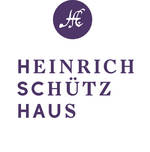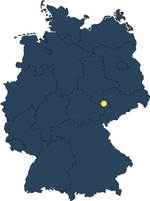Contact Information
Nikolaistraße 13
06667 Weißenfels
Germany
Phone: +49 3443 302835
Fax: +49 3443 337063
eMail: maik.reichel@weissenfels.de
www.schuetzhaus-weissenfels.de
The Heinrich Schütz House is the only one of the composer’s homes to survive in its original form. Schütz bought it in 1651 for his retirement, and lived there until shortly before his death in 1672. The exhibition allows visitors to experience Schütz’s life and work at the authentic site of his creativity. Its highlight is the restored “composing parlour”, which contains the museum’s most valuable treasure: two fragments of music written in Schütz’s own hand, found during work on the building.
As well as historic musical instruments, the museum presents original early prints of Heinrich Schütz’s works. Audio stations and films give visitors a vivid impression of his composition style, while a music stand with audio installation invites them to sing themselves. And for a very personal encounter with the elderly composer, they can listen to his fictional reminiscences of important stages in his life at four “Schütz sofas”, with versions for children and adults.
The Renaissance building was carefully restored in 2010–11. An architectural and archaeological discovery trail draws attention to important finds and structural details.
The museum’s annual programme includes regular chamber concerts, lectures, and the Weissenfels Music Week. Every October a Heinrich Schütz Music Festival is organised by the Baroque music association “Mitteldeutsche Barockmusik e.V.” in cooperation with the Schütz houses in Bad Köstritz and Weissenfels and the association “Dresdner Hofmusik e.V.”. For school groups and families, the workshop MusikWerkStatt offers a rich educational programme.
Heinrich Schütz (1585–1672) is considered the most significant German composer of the seventeenth century. Born in the Thuringian town of Köstritz, he spent his childhood and youth in Weissenfels and as a choirboy in Kassel. He studied music in Venice and was appointed kapellmeister at the Dresden court. Schütz’s journeys took him right across Europe to Denmark and Italy. He was the most important intermediary of Italian music in the German-speaking countries, and left an indelible mark on Lutheran church music.
















